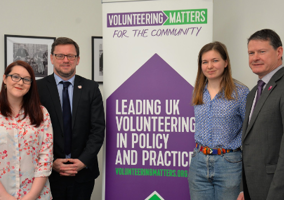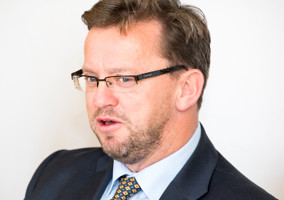Sophie Livingstone, chief executive of City Year, explains why her charity is campaigning for full-time volunteers to get more support.
The results of this year’s Community Life Survey relating to volunteering barriers come as no surprise, with young people citing study commitments followed by work commitments as the top reasons for not volunteering.
This presents volunteering organisations with an opportunity to tackle these barriers head on. Generation Z - those now in their mid-late teens and very early 20s - are statistically more likely than older generations to be charitable and seek a career that promises fulfilment over wealth. Having grown up post 9/11 with the rise of terrorism, recession and austerity, they’ve been exposed to global social problems from a very young age.
Whilst it is surprising that nearly a fifth (19 per cent) cite unawareness of need as a reason for not volunteering, the facts about this generation present volunteering organisations with a strong opportunity to engage those who haven’t donated their time to worthy causes.
Taking part in volunteering is particularly beneficial for young people. Evaluation from the charity I head up - City Year UK - has found that our volunteers develop their leadership, confidence and communication; skills that they need for successful working lives.
Businesses have been saying for years that young recruits aren’t ready for the workforce, with the CBI reporting in its last Work Survey that nearly half of businesses aren’t satisfied with the resilience and self-management of young people.
Taking part in volunteering also encourages participants to get out of their comfort zone, work with people from different backgrounds and experience something different from their norm. These transitional experiences are hugely valuable, and if they come before a major life change such as leaving home for university or entering the workplace, can make the difference between a successful or difficult move.
‘A domestic gap year’
We should be creating space for young people to take up full-time volunteering free from work and study commitments.
We are in the midst of exam results season and as always there is a lot of talk about gap years. Ucas has reported that the traditional gap year of a voyage of self discovery is falling in popularity as young people are looking for more worthy experiences that will impress university admissions teams and future employers.
A year out is a great time to take on the challenge of volunteering, as young people are free of study commitments. Many will go abroad to do this, and whilst there is nothing wrong with this, there are plenty of social issues that need tackling in the UK and we should be encouraging young people to consider a ‘domestic gap year’, taking on the challenge of full-time volunteering and creating positive change in local communities.
Unachievable luxury
However, volunteering on a year out, whether at home or abroad, is an unachievable luxury for many. Currently, anyone who volunteers full-time in the UK is classified as NEET (Not in Employment, Education or Training). This means they miss out on benefits such as National Insurance contributions which students and job seekers are entitled to.
This is where the government comes in. We are calling for a government-supported structure for full-time volunteering with a proper legal status for those who take up the challenge.
The USA, France and Germany, amongst a number of developed countries, have all established full-time voluntary national community service programmes, allowing hundreds of thousands of young people to give millions of volunteer hours every year to serve their country without work or study barriers. AmeriCorps in the USA allows 80,000 young people to take part in full-time volunteering each year.
I strongly believe the UK would benefit from such a programme. We are all aware of the social issues communities face, and young people are perfectly placed to tackle these. A government-supported programme would benefit all sectors, from education to health, heritage and animal welfare.
Not only that but Demos’ Service Nation 2020 report of AmeriCorps participants found that they were 27 per cent more likely to find a job than those who hadn’t taken part in a full-time volunteering programme. Our own evaluation has found that our participants have a 3 per cent unemployment rate, compared to the current youth unemployment rate of 12.2 per cent.
I believe that government backing of full-time volunteers would break down the barriers preventing those who haven’t engaged with volunteering and create more opportunities for people - of all ages - to get involved. Young people are less likely to have commitments beyond work and study, and it is their creativity and energy that we need to tackle the issues society faces.
|
Related articles











